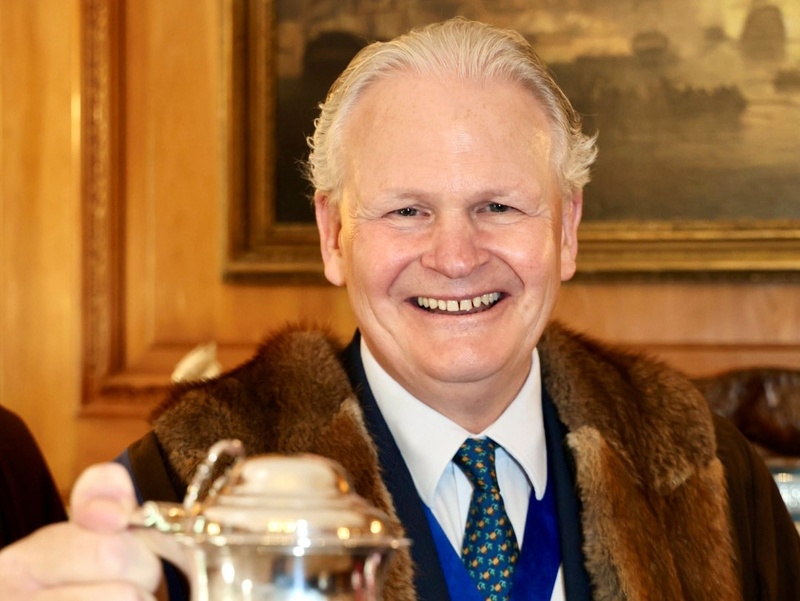A Rose Garland at Midsummer
07 August 2018
Our Archivist has been studying the earliest deeds for our Hall in Aldermanbury Square, with some interesting results. The Brewers have had a Hall here since 1402, when they purchased the building (for an unknown sum) from a Mercer. Along with it came 15 earlier deeds proving title and going right back, through the 1300s, to 1291.
This earliest deed of 1291 records the sale of the land and building where our Hall now stands, from an Alderman, Walter of Finchingfield (a member of the Goldsmiths’ Company), to Henry of Kent (a hosier) and his wife Matilda. The cost was 80 marks - £55, a substantial sum in those days. The deed, in Latin, also mentions that an annual “quit rent” was due, to Alderman Finchingfield and his heirs for ever, of one rose garland (“unum capellum rosarum”) every Midsummer’s Day, described in the deed as the Feast of the Nativity of St John the Baptist – 24 June.
The idea of quit rent goes back to the feudal system, when everyone had an overlord, who might demand some feudal service from those under him. Quit rents, usually a kind of respectful token, such as a red rose, a pair of gloves, or a peppercorn, “if demanded”, were symbols to indicate that nothing else could legally be exacted by the overlord. One still hears of a “peppercorn rent”, which comes from this kind of token payment.
What is surprising is that the Brewers took their quit rent seriously - and for a very long time. Even though Alderman Finchingfield the Goldsmith had been dead for 100 years when they bought the property, and everyone had lost track of who his legal heirs might be, the Brewers continued to pay for a garland of roses and other flowers to be made every summer, and hung it on the gate of the Hall on Midsummer’s Day. Imagine a Christmas wreath which people hang on their front doors today, but one composed of roses and other summer flowers.
The Company’s accounts, which survive from 1501 on, show this tradition still being carried out in the 16th century. “Paid for a rose garland and other flowers to hang out at our Hall gate at Midsummer for a quit rent – 8 pence” appears annually, with minor wording variations, right up to the year 1550, and then stops abruptly. This was during the reign of Edward VI, when Protestant reformers viewed ancient traditions and customs with suspicion. Even though our ceremony of hanging out a rose garland on Midsummer’s Day had no religious significance, the practice ceased, bringing to an end a tradition maintained for over 250 years.
A quit rent ceremony, also dating back to the 13th century, survives at the Royal Courts of Justice to this day. Every October, the Sheriffs of London, representing the City, deliver to the Queen’s Remembrancer (representing the Crown, as overlord) a curious present: six horseshoes and 61 nails, plus two knives, one sharp and one blunt. These relate to quit rents on two obscure pieces of property, so obscure now that no one remembers exactly where they were! But the ceremony still takes place, and can be watched by the public.


